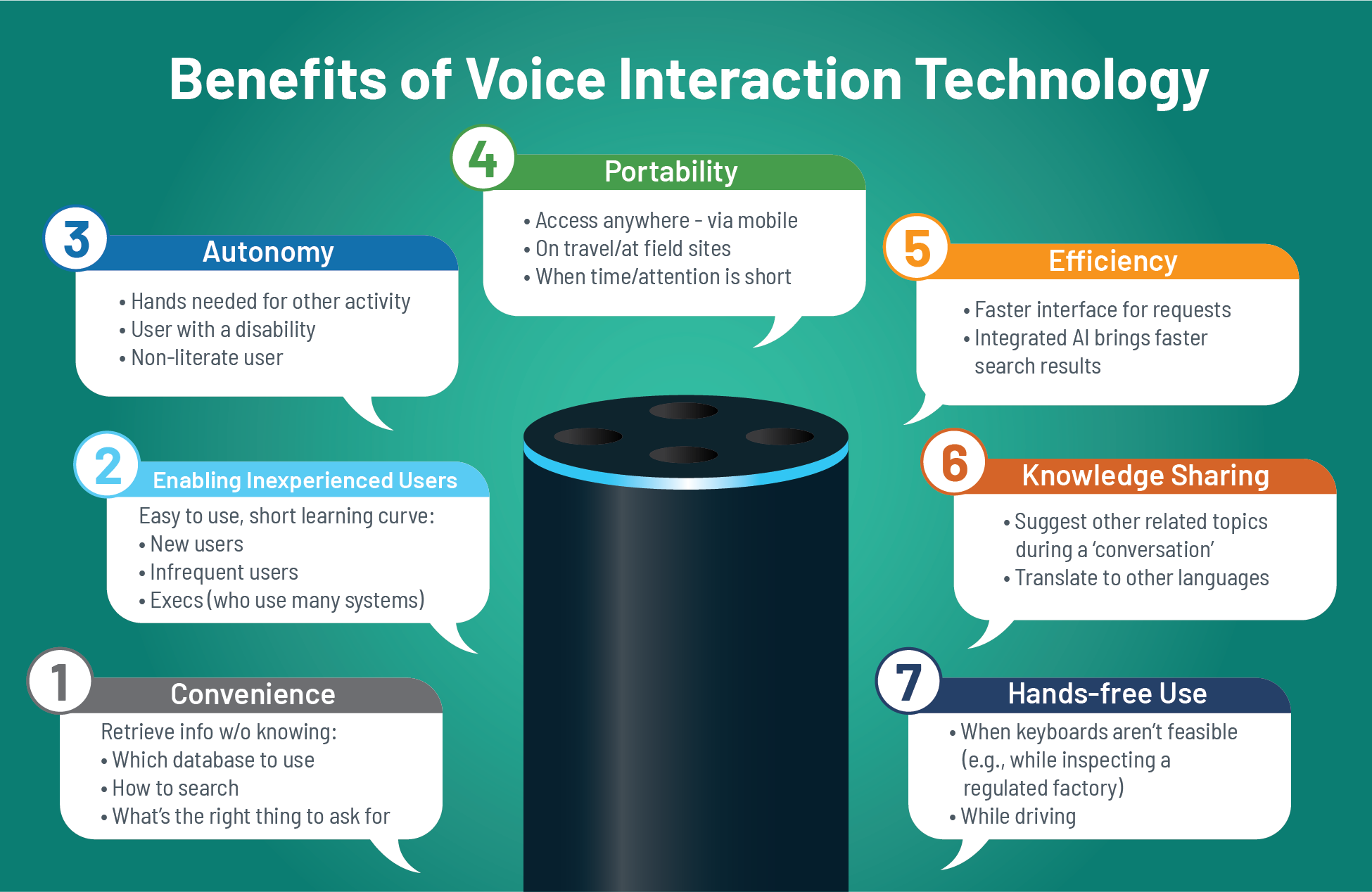Alexa, Can You Help Me With Government IT?

r.classen/Shutterstock.com
Smart speakers may be coming to an office near you.
Voice recognition technology is in our homes, our cars, and could soon play a major role in how business within government agencies is done.
More than 47 million adults have access to smart speaker technology. Google reports that roughly 20% of all searches are voice searches (including most searches made from mobile devices). Within two years, 30% of all web browsing will be done without a screen, according to Gartner, along with half of all searches, says ComScore.
Voice interactions are changing the way humans engage with computers to perform jobs. For example, we use Amazon’s Alexa, Apple’s Siri, Microsoft’s Cortana, and “Hey Google” to tell us how the weather is, call someone, turn on the lights, order products and even record memos or action items. Why is this happening? Because smart speaker technology allows people to do things more efficiently, on the run, and without having to manually interact with a computer or navigate a website. It’s important to note that potential users are not limited to Alexa, Siri, Cortana, Google, etc. because custom user interface platforms can be created. Voice interaction provides similar benefits to the government, both within an agency as well as to external users, the public. And, while that voice recognition technology may ease customer access to government websites and applications, perhaps an even more important revolution will take place entirely behind the scenes: Government employees will start using voice recognition technology to speed their interaction with the back-office administrative systems they use to perform the government’s work.
How It Works
Most voice agents use a combination of automatic speech recognition and natural language processing. ASR technology converts spoken words into text. With it, voice technology can detect spoken sounds and recognize them as words.
NLP is used to make sense of the text and the “intent” of the command. NLP is predominately done using a combination of statistical techniques as well as artificial intelligence techniques such as machine learning/deep learning models. Once “intent” is understood, the corresponding action can be taken through a programmed map of intents to actions. With more advanced systems, user feedback can help the system learn the best action to take based upon the words or phrases used and recognized.
Use in Government
Voice interaction technology is in the pilot stage across various public sector organizations, undergoing testing to ensure it can be deployed for use.

Challenges
Use of voice recognition will present a few new challenges, which agencies should keep in mind.
Security is a major concern when incorporating AI/UI into business and government environments. For one, it is easy for people to give a voice command, but what if they aren’t authorized to give that command? While this type of security concern can be addressed with methods such as one-time passwords or two-factor authentication, those methods have not been perfected as it related to AI/UI functionality. This can cause resistance, particularly in the public sector.
Issues also may arise involving integration with existing infrastructure. Government agencies have compliance and security requirements. There is the challenge of people using the technology, understanding how it works and incorporating it, there is always a reluctance to change.
The Bottom Line
Experts say the greatest difficulty of a conversational user interface lies less in the technical realm and more within the linguistic and contextual association. The success of voice capability entirely depends on the scenarios picked to deploy them. Failures happen when a scenario is either too inadequate for voice to offer value or in scenarios that are "too extreme,” which raise hope for what the technology can do but where the technology then fails to meet expectations. In both cases, voice capabilities fail to extend quantitative and qualitative value to the customer and the business.
As AI/UI become commonplace, enterprises both public and private will likely increasingly deploy voice-enabled technologies. Voice-enabled technology can offer a positive and more efficient shift in how agencies operate and function and how employees use technology, in addition to how the technology serves public end customers.
Srikanth Devarajan, Sanjeev Pulapaka and Pawin Chawanasunthornpot are solution architects at REI Systems.





